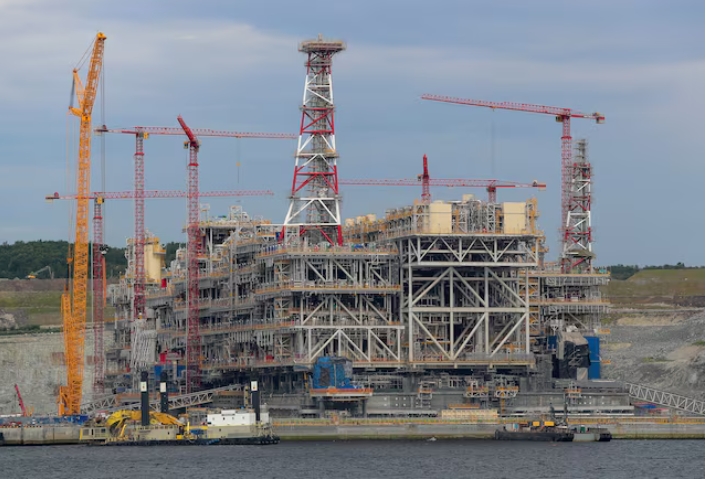
The Commission is in the final stages of ironing out its proposal and is engaged in informal talks with member states this week. The Commission declined to comment.
The proposal would not ban imports of Russian LNG to Europe, but instead target trans-shipments, which move LNG from one vessel to another that then sails onto its final destination. The transfers are usually done in port areas.
The other proposed measure would be to impose sanctions on three Russian LNG projects - Arctic LNG 2, Ust Luga and Murmansk - that are not yet operational.
The EU announced a ban on Russian seaborne oil imports soon after the invasion of Ukraine in February 2022, but the bloc has stopped short of prohibiting LNG, despite repeated calls by the Baltic states and Poland.
Imports of Russian LNG to Europe have increased since the war began, with Belgium, France, and Spain the biggest takers.
EU statistics and Reuters calculations show the rise in LNG has pushed the share of Russian gas in EU supply back up to around 15% after pipeline imports from Russia's state-owned Gazprom (GAZP.MM), plunged to 8.7% from 37% of EU gas supply.
Analysts have said existing sanctions and difficulties securing vessels mean Russia is unlikely to meet a government target to commission 100 million metric tons of LNG capacity by 2030. Actual capacity in 2030 is expected to be as much as 60 million tons short of that goal, Rystad Energy said.
The details are still being discussed, but one source said the Commission proposal would be finalised by the end of next week.
The sources said there would likely be more support to sanction the projects than to ban trans-shipments when the final proposal is formally presented to EU member states.